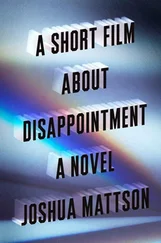At various times before the advent of DVDs, Stalker was shown on TV and I taped it, to make sure I had a record of the film but, unlike Mahmut in Uzak, I never watched Stalker on telly. That list of things and people I won’t watch on TV does not stop at Top Gear and Jeremy Clarkson. It also includes… Stalker. One cannot watch Stalker on TV for the simple reason that the Zone is cinema; it does not even exist on telly. The prohibition extends beyond Stalker, to anything that has any cinematic value. It doesn’t matter if the TV is HD: great cinema must be projected. It is the difference, as John Berger puts it, between watching the sky (‘from where else would film stars come if not from a film sky?’) and peering into a cupboard. I was so unshakeable in this rule, at a time when fewer and fewer classic films were being shown at the cinema, that I was in danger of eliminating much of film history from my life. I would permit us to watch only romcoms at home, films whose defining characteristic was an absolute lack of cinematic value. So we bought a DVD projector and it was wonderful, even though the setup each time we wanted to watch a film — setting the aspect ratio, clambering through the complexities of the menu tree, shifting stereo speakers, lowering the blinds to eliminate light from the street — often reduced me to a state of such fury that the screening had to be aborted. All of this was, perhaps, to be expected. The unexpected problem was that so many of the classic films of the past actually turned out to be pretty terrible. Buñuel’s The Discreet Charm of the Bourgeoisie and Belle de Jour sucked. Godard’s Breathless was unwatchable, and not only because of the smoking. Kieslowski’s The Double Life of Véronique made straightahead porn seem tasteful by comparison. Getting through Bresson’s Diary of a Country Priest was a bit of a struggle too. Still, at least we could watch Tarkovsky. Except Nostalghia, a film I saw and was disappointed and bored by when it first came out, was even worse than I remembered it, so bad— so far up itself — that I thought it best to leave The Sacrifice on the video shop’s shelves of memory.
39Scope, also, for an allusive YouTube-style redub: Professor answers the phone and says, ‘Ah Michelangelo!’
40Tarkovsky toyed with the idea of a ‘subsequent film’ in which Stalker himself develops some of these tendencies and ‘starts forcibly to drag people to the Room and turns into a “votary”, a “fascist”. Bullying them into happiness.’
41As is the film itself. Stalker has long been synonymous both with cinema’s claims to high art and a test of the viewer’s ability to appreciate it as such. Anyone sharing Cate Blanchett’s enthusiasm—‘every single frame of the film is burned into my retina’—attests not only to Tarkovsky’s lofty purity of purpose but to their own capacity to survive at the challenging peaks of human achievement. So a certain amount of blowback is inevitable and desirable. Having given Tarkovsky short and rather grudging shrift in the various editions of his Biographical Dictionary of Film, David Thomson was moved, in 2008, to include Stalker (mentioned but not discussed in the Dictionary) in his pantheon of the thousand best movies, ‘Have You Seen…?’ But he remained dubious about the much-hyped Room at the heart of the Zone, suspecting that it would turn out to be ‘an infinite, if dank enclosure in which an uncertain number of strangers are watching the works of Tarkovsky. Equally, it may be that as malfunction of one kind or another covers the world, we may have a hard time distinguishing the Room, the Zone, and the local multiplex.’ This is infinitely preferable to the reverence that Tarkovsky tends to invite from his admirers — including himself. I have little instinct for personal reverence and, though I’ve not exactly been inundated with offers, I know I would hate to be revered myself. One of the things that I thought I would love as a writer, one of the perks of the job, would be having people come up to me to say how much they loved my books. And I do like it. For about ten seconds. After that I am desperate for the conversation to move on to any other topic. Actually, I need to slightly qualify what I just said about my own capacity for revering. I have a sizeable capacity for admiring people’s work but I suspect that the verb ‘to revere’ describes a relation to people rather than things. Let’s say I greatly admired your work and, at some point, had the chance to meet you. I would be overjoyed and would not be shy about expressing my admiration. But after a very short time, if I felt that you were interested in this as a basis for any kind of interaction, if you wanted to extend the reverence beyond what was considered politely necessary — if, in other words, you didn’t get bored by being revered almost as quickly as I would be bored by revering — then I would start thinking you were a dick.
All of this is a lengthy way of introducing a pretty simple point: that if you have a considerable instinct for reverence and if you don’t have an aversion to being revered, then it makes perfect sense to start revering yourself. If you’re a public figure then this occurs in public. This, I think, is what happened to Tarkovsky.
42Reading about and around Stalker or Tarkovsky, one cannot go for long without this word miracle cropping up. ‘My discovery of Tarkovsky’s first film was like a miracle,’ said Bergman. He was talking about Ivan’s Childhood, but continued in a way that could not but put one in mind of Stalker, as if his innermost cinematic wishes had come true. ‘Suddenly, I found myself standing at the door of a room, the keys of which had, until then, never been given to me. It was a room I had always wanted to enter and where he was moving freely and fully at ease.’ Kris, near the end of Solaris, also seems to be looking ahead to what the director might come up with next: ‘The only thing that remains for me is to wait. For what? I don’t know. A new miracle?’ There were more miracles to come from Tarkovsky— though none of these took the form of further employment for Donatas Banionis, who played the part of Kris. The caption at the beginning of Stalker describes the Zone as ‘a miracle.’ A still from The Sacrifice in the updated edition of Sculpting in Time was summarized by Tarkovsky with these words: ‘“Little Man” waters the tree his father planted, patiently awaiting the miracle which is no more than the truth.’ And the miraculous, it seems, was not confined to the effects created on-screen, but was part of the process by which they were achieved. Looking back on the numerous obstacles that had to be overcome with so many of the shots and set ups, production designer Rashit Safiullin said, ‘Every time it was a little miracle-making.’
The prevalence of miracles and the routinely miraculous in Tarkovsky perhaps hints at something more general about the society and history of which he was a product. One of the goals of Marxism-Leninism or of historical materialism is to do away with the category of the miraculous— in history, as in logic, there are no surprises. As the promise of the Soviet Revolution hardened into the relentless bureaucracy of Stalinism, so the opposite occurred. The thoroughness with which everyone was caught in the mechanism of the totalitarian system meant that any escape or exemption acquired the quality of a miracle. ‘The greater the degree of centralisation,’ writes Nadezhda Mandelstam in Hope Against Hope, ‘the more impressive the miracle.’ The more intolerable life became the more it became ‘impossible’ to live without miracles. Addressing letters to Stalin in the hope of clemency or of having a sentence commuted—‘what is such a letter but a plea for a miracle?’—meant that people lived in the routine expectation of miracles: ‘They had become part of our life.’ On the occasions that these pleas were answered — as happened to Osip Mandelstam in 1934—people were ‘overjoyed.’ But, Nadezhda continues in terms curiously appropriate to Stalker, ‘one must remember that even if they got their miracles, the writers of such letters were doomed to bitter disappointment. This they were never prepared for, despite the warning of popular wisdom that miracles are never more than a flash in the pan, with no lasting effect. What are people left with in the fairy tales after their three wishes have come true? What becomes, in the morning, of the gold obtained in the night from the lame man? It turns into a slab of clay or a handful of dust. The only good life is one in which there is no need for miracles.’
Читать дальше












